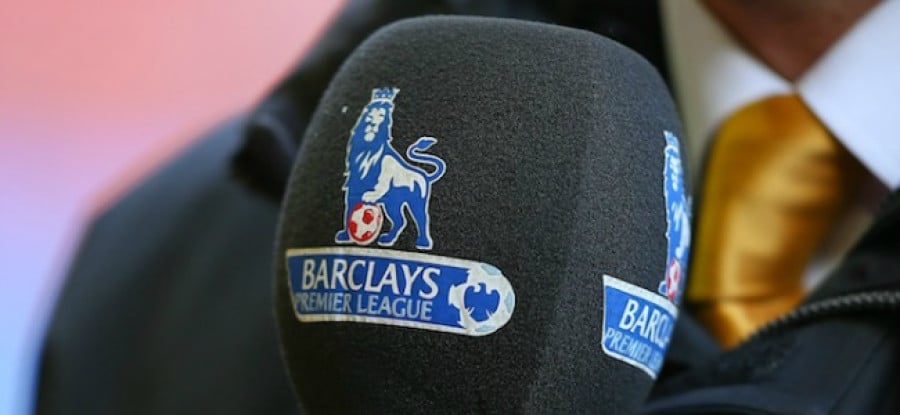How could the rising Premier League broadcasting revenue impact clubs' compliance with Financial Fair Play?
Thursday, 26 March 2015 Author: Paul Shapiro, Ben ReesThe Barclays Premier League (“PL”) has secured its second consecutive 70% price increase for the right to broadcast PL games live in the UK. The new £5.136bn deal agreed with BT Sport and Sky forseasons 2016/17 to 2018/191 is in addition to the broad range of other packages already awarded, such as for domestic highlights to the BBC for £204m2 and near live clip rights to News International.
This now places the PL second only to the NFL in terms of total revenue received for the right to broadcast matches.3 Clearly, the desire for live PL content, both domestically and abroad, has never been stronger and PL clubs will no doubt welcome this boost in revenue.
In this article, the authors consider how this broadcasting revenue is distributed to PL clubs along with those further down the football ladder, and reflect on what impact this may have on compliance with the financial regulations operated by UEFA, the PL and The Football League (“FL”).
How is broadcasting revenue distributed?
Half of the PL’s UK broadcasting money is split equally between all PL clubs (including a proportion to those recently relegated as is discussed further below), a quarter is paid based on league position and the remaining quarter is distributed according to the number of matches the club plays which are televised live or of which recorded excerpts are broadcast.4
Monies received by the PL from overseas broadcasts are distributed equally amongst all PL clubs.5 This meant that for the 2013/2014 season Liverpool, despite losing out on the PL title to Manchester City, received the greatest broadcasting funds at £97,544,336 from the existing broadcasting deal. This was just above the £96,578,329 received by Manchester City because Liverpool had more games televised.6 The new deal will push these figures higher still.
This model is to be contrasted with those seen elsewhere, for example in Spain, where clubs currently negotiate broadcasting deals individually and, therefore, a club’s broadcasting revenue depends far more on its negotiating position stemming from its size and television exposure (great for the larger Real Madrids and Barcelonas, but not so good for the smaller Cordobas and Elches). The revenue inequality this generates has led the Espanyol president, Joan Collet, to suggest that many of Spain's top-flight clubs will refuse to participate in La Liga if the Spanish government does not pass its long awaited ‘law on professional sports’ requiring the collective sale of TV rights.7
Unsurprisingly, given the size of the broadcasting figures in the PL, they equate to a hefty proportion of clubs’ revenues. By way of example, Swansea’s recently released financial results for the year to 31 May 2014 show that media revenue accounted for almost 82% of turnover.8 Given the increase that will filter down from the recent Sky/BT Sport deal, the reliance on these revenues is likely set to increase.
It is not just the incumbent PL clubs who will benefit. As part of the PL’s support for the wider football family, the PL provides a significant level of funding to the lower professional leagues in the form of parachute and solidarity payments. Parachute payments are made to clubs in the four seasons following their relegation, with the aim of easing their transition to life outside the PL. The level of these payments is calculated by reference to UK and overseas broadcasting revenue received by the PL9 so that, for example, a newly relegated club in 2014 will receive approximately £24m in its first season after being regulated.10 Eight Championship clubs were in receipt of parachute payments in 2013/14 at an average value of circa £18m.11 Under the current regime, payments are made for the four seasons following relegation but the proportion of PL broadcasting revenue received reduces in years two and three.12 Solidarity payments are made to FL clubs who do not receive parachute payments but are set at a much lower level than parachute payments.13 The PL and FL have recently entered into a new arrangement in respect of these funds, which we consider further below.
The importance of these payments (parachute payments in particular) can be gleaned through a quick look at the accounts of a club recently relegated from the PL - Reading FC. Reading won promotion to the PL in the 2012/2013 season, but were immediately relegated the following year. In their 2011/12 promotion season, where funds were received under the Championship broadcasting deal only, their media and broadcasting income stood at £5,075,166.14 This then ballooned to £43,766,333 (£40,029,786 of which was from broadcasting alone15) in 2012/13 when the club was in the PL. On their return to the Championship in 2013/14, media and broadcasting income did drop to £27,543,929, but this was nowhere near the level during their last stint in the Championship because they now were receiving parachute payments.16
To continue reading or watching login or register here
Already a member? Sign in
Get access to all of the expert analysis and commentary at LawInSport including articles, webinars, conference videos and podcast transcripts. Find out more here.
- Tags: Broadcasting | Championship | England | Financial Fair Play | Football | France | OFCOM | Premier League | Spain | The FA | The Football League | UEFA | UEFA Club Licensing and Financial Fair Play Regulations
Related Articles
- Does the loan of Frank Lampard to Man City raise Financial Fair Play concerns?
- What does Ofcom’s investigation into Premier League broadcasting rights mean for stakeholders?
- Key sports law cases and developments to watch in 2015
- An update on Manchester City’s compliance with Financial Fair Play
Written by
Paul Shapiro
Managing Associate, Northridge
Paul is a Managing Associate at Northridge. He specialises in commercial and regulatory advice to clients in the sports and media sectors. Paul’s experience includes acting for athletes, brands and rights holders on sponsorship, licensing and merchandising programmes. He also regularly advises on governance issues and financial regulation in the sport and on player contracts, football transfers and image rights structures.
Ben Rees
Associate, Northridge
Ben is a commercial litigator, with a particular focus on the sports sector. He works closely with sports governing bodies, teams, broadcasters and other commercial parties in relation to High Court litigation, arbitral proceedings (including before the Court of Arbitration for Sport), disciplinary cases (including before FIFA bodies) and regulatory matters.






